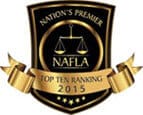In order to have value, a professional degree must have been procured. It is more than a simple Bachelor of Arts or Science degree. For ease of identification, let’s say it is a doctor, lawyer or a Master’s Degree. The question then becomes: has the community received fair compensation? It has been held by our Court that the Court must treat the education as an asset and place a value thereon. The value must consist of the cost of the education and the increased income potential. In re The Marriage of Washburn, 101 Wn. 2d 168, 677 P.2d 152 (1984).
Authored by Wolfgang R. Anderson, Attorney at Law
Often, the cost was defrayed by an employer or loans and therefore will not add much to the value of a professional education. What does matter, however, is the increased income that can then be valued by a professional. One has to take a look at the income of an individual before the professional degree and compare it with the value after the professional degree. As a for instance, someone who has a pre-professional income of $40 per hour which then goes to $300 per hour, his benefit will be very sizeable. By case law, the future earning capacity of each spouse, including their earning potential of the student/spouse with a professional degree, is an important factor for the Court to consider. Interesting questions then arise with regard an incomplete degree, an aborted degree, or someone who is employed outside the field of their professional education. Such cases must all be weighed with the rest of the factors for the Court to make a decision.
General Consideration For The Division Of Property
The law favors the characterization of property as community unless there is clearly no question of its question as separate. In re The Marriage of Brewer, 137 Wn. 2d 756, 976 P.2d 102 (1999).
Assets acquired during a marriage are presumed to be community property for purposes of distribution of property in a marriage dissolution proceeding unless the presumption is rebutted by clear and convincing evidence to the contrary. In re The Marriage of Griswold, 112 Wn. App. 333, 48 P. 3d 1018 (2002).
The rebuttal of the presumption can be by showing the assets were acquired as separate property from a separate source or by deed.
Assets acquired outside of Washington are not characterized by Washington law, but the state of residence where the property was acquired. In re The Marriage of Zahm, 138 Wn. 2d, 955 P.2d 412 (1999).
Property is characterized as of the date it was acquired. In re The Marriage of Skarbek, 100 Wn. App. 444, 997 P. 2d 447 (2000).
The title of the name under which property is held is just one of the factors, however, in determining the character of property. In re The Marriage of Hurd, 69 Wn. App. 38, 848 P. 2d 185 (1993). Intent is what really governs and must be ascertained. Estate of Borghi, 141 Wn.App. 294, 169 P.3d 847 (2007).
Further, property acquired by inheritance, even if acquired during marriage, is separate property. In re The Marriage of Wright, 105 Wn. App. 545, 27 P.3d 263 (2001).
Likewise, property acquired during a permanent separation is separate property so long as the source of acquisition is also separate. In re The Marriage of Short, 125 Wn. 2d 865, 890 P. 2d 12 (1995)
Gifts are presumed to be community property, but the presumption may be rebutted with clear and convincing evidence that the donor intended a community use. As a for instance, a picture of a new vehicle with a big bow and a “happy birthday” sign will not disprove a gift, while a picture of a car titled in both names, without more, and when purchased during marriage, is community property.
A party claiming that property is separate in nature carries the burden of proof. In re The Marriage of Davison, 112 Wn. App. 251, 48 P.3d 358 (2002).
If there is a claim that separate property was converted to community property, it places the burden on tracing on the community. In re The Marriage of Mueller, 140 Wn. App. 496, 167 P. 3d 568 (2007).
Wasting or the dissipation of assets is a factor for consideration in a final property award. In re The Marriage of Wallace, 111 Wn. App. 697, 45 P. 3d 1131 (2002).While in its earlier days alcoholism and gambling were considered a waste of assets, such is now considered a disability. In re The Marriage of Williams, 84 Wn. App. 263, 927 P.2d 679 (1996)
Finally, the Court can divide all property in a just and equitable manner. The Court, in a long-term marriage is more likely to treat separate property as community property and divide the same in an overall equal division. In re The Marriage of Wright, 179 Wn. App. 257, 319 P.3d 45 (2014)
The Court can also give the property of one to the other. In re The Marriage of Sedlock, 69 Wn. App. 484, 849 P.2d 1243 (1993)
An inheritance received shortly before a dissolution, regardless of the length of marriage, will likely be treated and retain its separate character under the theory that it has not become part of the marital lifestyle. What the Court cannot do is award property to both parties, i.e., as tenants-in-common, because the Court is not performing the function for which it is designated, and that is to sever the bonds of matrimony and to sever the relationship of the parties. Bernier v. Bernier, 44 Wn. 2d 447, 267 P.2d 1066 (1954).






